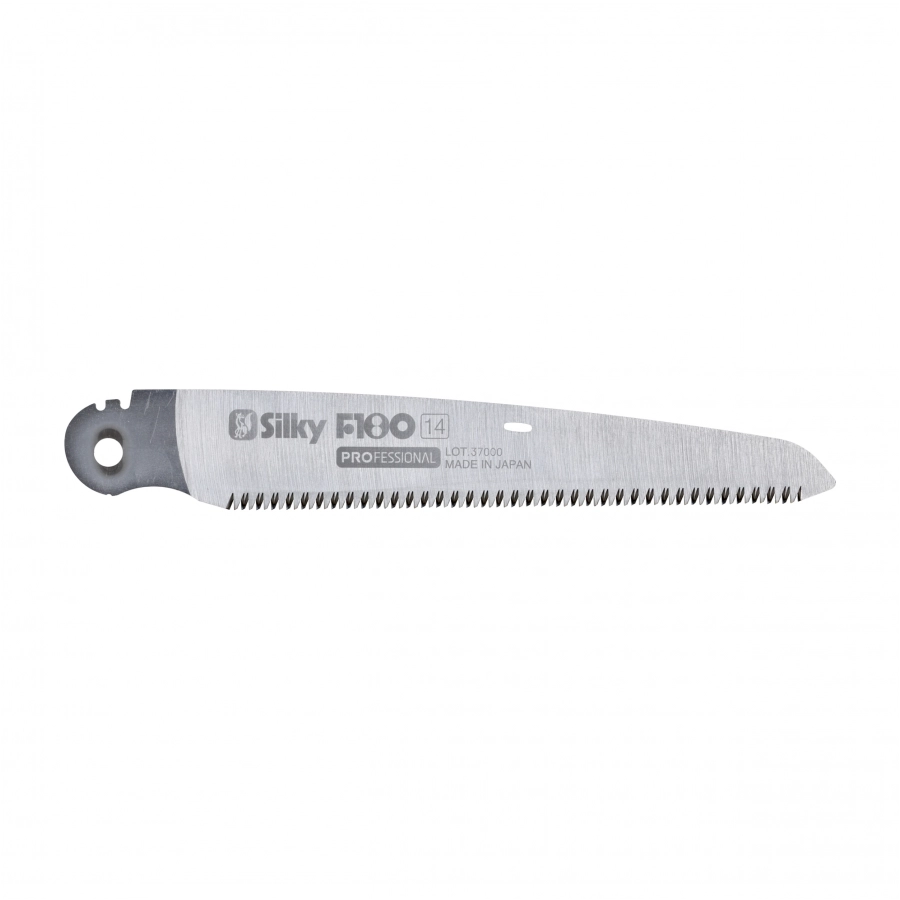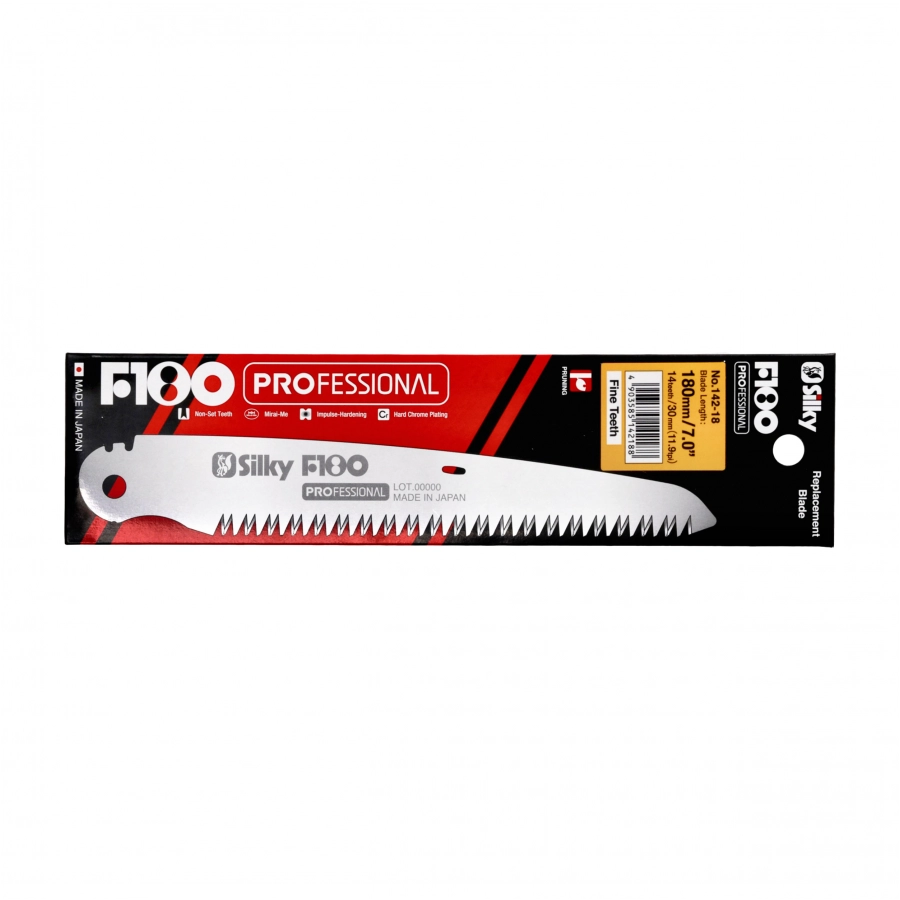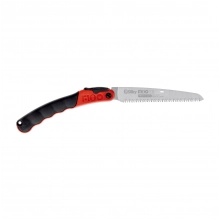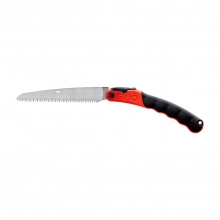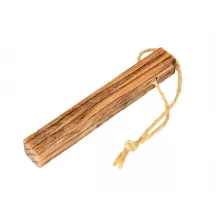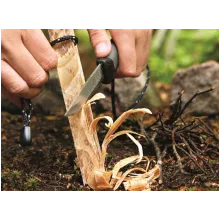Replacement blade 180-14 for the Silky F180 saw designed for dry seasoned wood.
The blade has been laser-cut from premium Japanese steel coated with a layer of chrome to protect against corrosion, harmful external elements and wood sap.
Theteeth, set in 4 planes, are impulse-hardened, making the cutting edge hard and resilient, while the rest of the blade retains sufficient flexibility and elasticity. This prevents the saw from breaking even with improper or careless use. The precision-sharpened teeth of the blade, with an hourglass cross-section, have a perfectly smooth surface, which prevents the saw from wedging during operation.
To streamline and increase productivity and comfort, one of the blade teeth faces outward. This speeds up chip evacuation and ensures an almost perfectly smooth surface on the cut wood.
The Fine blade has 14 teeth for every 30 mm of its length, so it will work best when chopping dry wood up to 90 mm thick. The resulting cut in the wood is 1.1 mm wide.
Technologies
 Chrome-plated finish
Chrome-plated finish
Chrome plating of the blade makes the surface of the blade extremely hard and durable, while reducing friction and increasing blade life. In addition, chrome plating protects the blade from rust and resin. Before applying the chrome plating, Silky polishes the blade to a silk-smooth finish. This makes the blade encounter even less resistance in the wood when sawing.
 Electro-pulse hardening
Electro-pulse hardening
The tips of the teeth are heated to a very high temperature for a fraction of a second. Since only the tip (or otherwise the cutting part) of the tooth is heated, the rest of the tooth retains its cutting quality, but also its flexibility. Induction-hardened teeth have three times the life of untreated teeth. They cannot be sharpened and can be recognized by the black tips of the teeth.
 Mirai-Me teeth
Mirai-Me teeth
The razor-sharp teeth are precision ground into the blade, each with 3 cutting edges and resulting in an extremely smooth surface. For optimum sawdust evacuation, every back tooth (depending on the saw model) is ground outward. This unrivaled, patented MIRAI-ME technology allows the saw to be used for 3 types of cutting: cross-cutting (perpendicular to the grain), rip-cutting (parallel to the grain direction) and mitering. During pruning work, a smooth saw cut will allow the tree wound to overgrow easily. In carpentry, a smooth saw cut provides an excellent finish, making sanding unnecessary.
 Non-spaced teeth
Non-spaced teeth
The teeth are precision ground into the blade, each with 4 cutting surfaces. The teeth are "unspaced" so that the cutting surface cuts straight into the wood, destroying about 50% fewer wood cells. The blades are ground biconcave: the lower part of the blade (near the teeth) is thickest, the upper part is slightly thinner, and the blade is thinnest in the middle. This design has several advantages: Less power needed for sawing, discharges sawdust effortlessly (it won't get stuck in the wood), very clean saw cut - no breaking or tearing of the wood creates a very accurate, smooth saw cut.
The YouTube video display has been blocked because it uses marketing and analytics cookies to which you have not consented. To watch the video, you need to accept these cookies.
